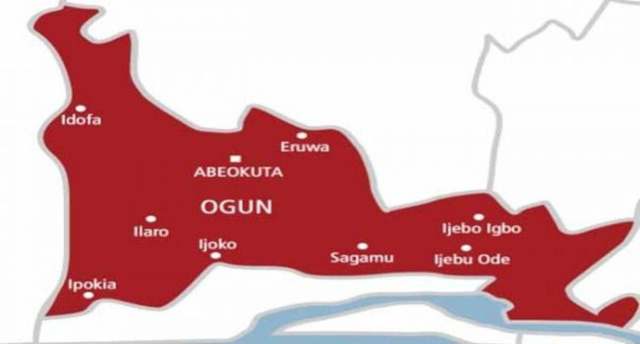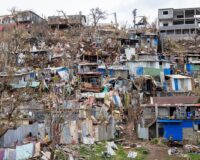The Federal Government has declared over 500 Nigerians dead and 1,411,051 affected as a result of recent flood disasters across the country.
The permanent secretary of the Ministry of Humanitarian Affairs, Disaster Management and Social Development, Dr Nasir Sani-Gwarzo, declared this in Abuja yesterday while giving updates on the recent flood incidents.
He said 31 states of the federation and the Federal Capital Territory were affected.
He also stated that 146,734 hectares of farmlands were destroyed and 89,348 houses damaged.
He said: “Over 500 people are reported dead. 1,411,051 persons have been affected. The displaced persons that have moved out of their locations are up to 790,254.
“About 1,546 persons that were displaced are injured.
“Furthermore, 44,099 houses are partially damaged; 45,249 houses were totally damaged and 76,168 hectares of farmland are partially damaged; while 70,566 hectares of farmland are completely damaged.”
The permanent secretary noted that with many communities already affected, there was still a prediction that many more communities might be affected, especially along the line of the River Benue, River Niger “and down to the ocean.”
He said the economic loss could not yet be quantified. “When an event is evolving, you do not have a complete analysis of what has been damaged. However, damage and loss assessment for farmlands, poultry facilities, livestock and fisheries as a result of the large-scale inundation is ongoing. The estimate will come in later but at least, we know what has been damaged.”
Sani-Gwarzo said the states were informed of the flood predictions.
“The prediction and mapping have reached a level where we could pinpoint specific states, LGAs and communities and because disaster management is on the concurrent list, states and LGAs affected have been formally written to ahead of the impact.
“Meetings have been held between Mr. President and the governors and the minister has attended meetings with the governors to tell them about the specific communities and villages.
“I have all the exhibit of letters that have been sent to those states telling them that the rainfall will be on the high side. So, all the predictions increased and the communities were communicated through their governors.
“Beyond predictions, we proffered solutions and many states know what to do. So, a good portion of the response is at the state level.”
The permanent secretary said the federal government was taking every necessary action to bring relief to those affected.
“NEMA has so provided relief support to over 315,000 displaced persons across the flood disaster hotspots where state capacities have been overwhelmed.
“We are very much aware of what is happening and we are prepared to reduce the impact and also to make sure that places that have not been affected get some relief.
“The impact of the flood will be reduced to a minimum and more lives will be saved and we seek public support in ensuring that the damage is not further worsened.
“We have come up with three approaches for the future. One is: what are the immediate actions that will be taken by the respective agencies? What are the short terms measures that would be taken by the agencies responsible and then long-term actions.
“Fortunately for us, the National Flood Emergency Preparedness and Response Plan for Nigeria has just been approved by the Federal Executive Council and it contains all the details of the roadmap.
“So, we are very clear on what to do and we have a book that will guide us. The document will be put to good use by the agencies.
“Moving the displaced persons has been both easy and difficult. For areas where the water level is high, with the help of the military, we have been able to ship supplies either by military boats or their aircraft and NEMA has been on top of that.”
He said Nigeria and Cameroon had a Memorandum of Understanding on how the processes and the release of water from Lagdo Dam would go so that it would not cost too much damage to the countries.
“We have in-house challenges and we have relationship issues that we will need to improve upon but necessary action is being taken including bilateral talks daily beyond writing to ensure things are coordinated.”
The president of the Christian Association of Nigeria, Archbishop Daniel Okoh, yesterday in a statement, urged the Federal Government to urgently set up and empower a Presidential Flood Relief and Rehabilitation Committee that would consist of eminent and wealthy Nigerians to mobilise financial assistance from both the public and private sectors for the victims of the flood disaster raging communities across the country.
He expressed concern over the havoc floods had wreaked around the country lately.
More states to be affected – NiMet, NIHSA
The Nigerian Meteorological Agency (NiMet) and the Nigeria Hydrological Services Agency (NIHSA) yesterday warned that more states were likely to experience floods in the coming days.
They specifically cited states in the North Central, South-East and South-West as most vulnerable.
The Director-General, NiMet, Mansur Bako Matazu and the Director-General, Nigeria Hydrological Services Agency (NIHSA), Clement Nze gave the indication on Tuesday in Abuja at the opening ceremony of a workshop on hydro-meteorological status and outlook system.
The NiMet DG said in the coming days, there would be high intensity rains adding that coupled with the dams being let open, there would be more floods.
“Remember, we issued the forecast in February and we followed up with the monthly updates that we are going to have above normal rainfall in most parts of the country. So in terms of the rainfall induced floods, we have seen the peak but we told you that this rainwater gets collected into the reservoirs and dams, and whenever they are filled, it gets spilled.
“So, on the13th of September, the Lagbo Dam was released and also the Kainji and Shiroro dams were released. So what we’re witnessing now is riverine flooding”, Matazu said.
He said from information from the NIHSA “we’re going to see more floods now that the rains are concentrating on the North Central and the southern states.”
“We’re going to see more of these floods in the north central states as we are seeing in Kogi and also south eastern and southwestern states as we are beginning to see in parts of Southwest,” he said.
The DG NIHSA, Nze said the flood that had happened was primarily caused by rainfall and not the released dams.
He also noted that coupled with the fact that some people had built on flood plains, and with the rise in water levels in the River Niger and Benue, the floods became inevitable.







